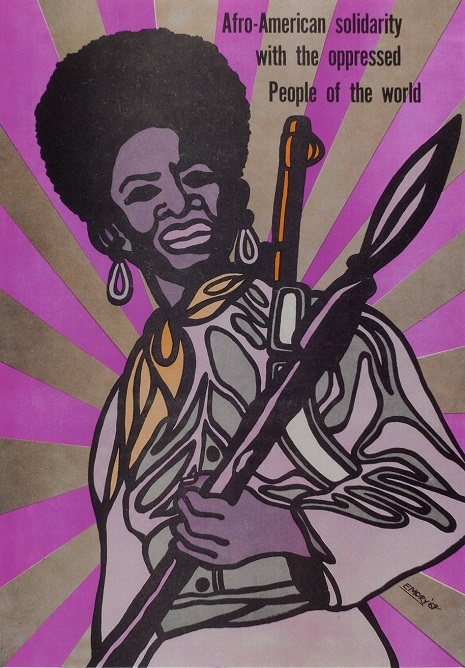
Emory Douglas served as Minister of Culture for the Black Panther Party and artistic director of The Black Panther newspaper from its inception in 1967. Douglas is unquestionably one of the most important artists and designers working in the political realm in the last several decades, and his work is a necessary component of anyone’s understanding of the lived experience of activism, advocacy, and resistance.
If you are trying to push an issue forward on the grass-roots level, whether it’s women’s health issues, the crimes of the 1%, or the candidacy of Bernie Sanders, the work of Emory Douglas is relevant to you.
Douglas was a native of the Bay Area; as a “guest” of the California Youth Authority (today it’s called the California Division of Juvenile Justice)—basically prison for teenage offenders—he was told to work in the print shop, which he called “my first introduction to graphic design.”
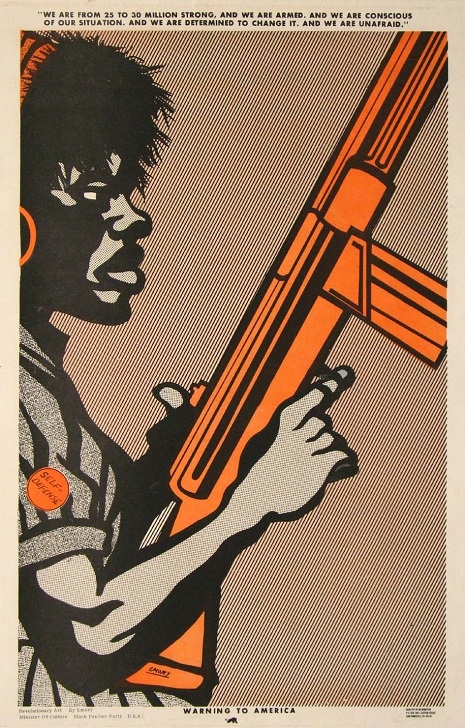
Huey P. Newton asked Douglas to provide the Black Panther newspaper with an effective visual style. Douglas and Eldridge Cleaver did many of the early issues pretty much by themselves.
One inspiration Douglas had was to mimic woodcuts for their ability to communicate ideas very clearly in a simple and stark visual style, an approach that proved very effective for his entire career. One factor that influenced Douglas’ style was that the Panthers could only afford one other color (aside from black and white), most of the time. So the picture would be conceived in a powerful black-and-white way and then the single color would be used to highlight some portion of the picture. In a way, it helped that the pictures weren’t too complex in terms of the color palette.
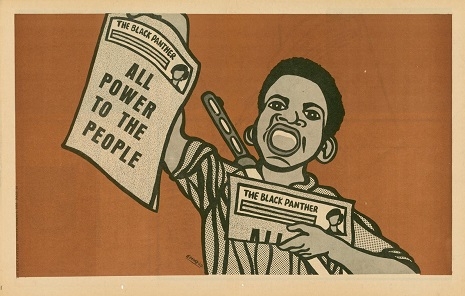
1969
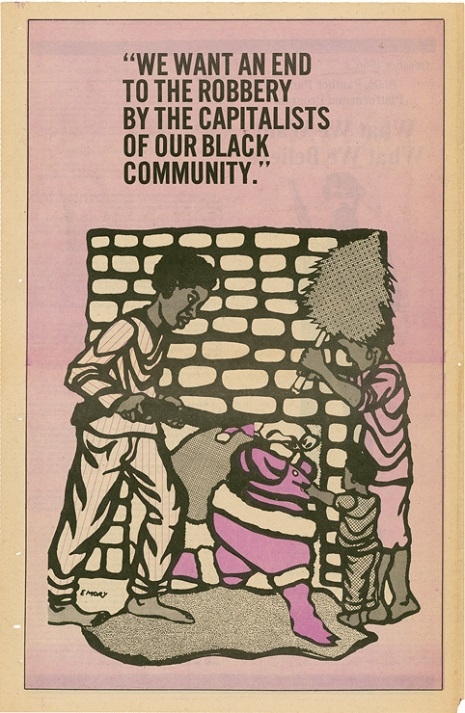
Date unknown
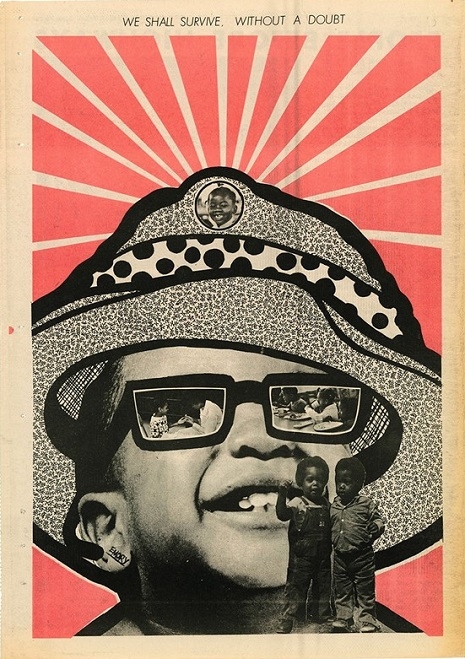

Emory Douglas: The Art of The Black Panthers is an efficient and informative 8-minute documentary on the man himself. Directed by Dress Code, a boutique production company run by Dan Covert and Andre Andreev, the movie consists mostly footage of Douglas telling his story, and as he talks, his statements are illustrated by images of Douglas’ work and also footage of the Black Panthers.
As Douglas says, “Art has relevancy—whether it’s to exploit you or pacify you or to enlighten you and inform you.” Essential viewing!